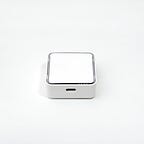Air Pollution, Food Delivery, Covid-19, and Plastic Waste
How air pollution drives food delivery worldwide. Now, with Covid-19, plastic wastes further skyrocketed.
It is without a doubt that the food delivery industry has witnessed massive growth over the last few years, as people are using them more and more to save time going to, queuing for, and then coming home from restaurants.
According to a study by the National University of Singapore (NUS), when the air outside is bad, office workers are more likely to order food delivery than go out for lunch, which in turn increases plastic waste from food packaging.
The study surveyed the lunch choices of 251 office workers repeatedly over time (each worker for 11 workdays) in three often smog-filled Chinese cities — Beijing, Shenyang and Shijiazhuang — between January and June 2018. To complement the office-worker survey, the researchers also accessed the 2016 Beijing order book of an online food delivery platform, which broadly represented all market segments served by the food delivery industry — collecting observational data on 3.5 million food delivery orders from about 350,000 users.
In a study published in Nature Human Behavior, researchers discovered that office workers in those three Chinese cities are 43% more likely to order food delivery when there’s an increase of 100 micrograms per cubic metre in particulate matter pollution (PM2.5). By contrast, the general public was almost 10% more likely to use food delivery services with the same increase in air pollution.
“Faced with smog or haze outside, a typical office worker at lunchtime can avoid exposure only by ordering food to be delivered to his or her doorstep,” according to NUS Associate Professor, Chu Junhong. This means that on a given day in one city if AQI increased by 100 micrograms per cubic metre, 2.5 million more meals would be delivered. “Our findings probably apply to other typically polluted developing-nation cities, such as in Bangladesh, India, Indonesia and Vietnam,” Chu warns.
Chu also explained in the release why air pollution seemed to have a smaller impact on food delivery in the general public than in workers because people try to avoid the outdoors on a polluted day by using a home kitchen or eating at a cafeteria within their office building.
COVID-19 has exacerbated the problem by increasing the demand for delivered meals, which are usually packaged in plastic, the video explained. As the pandemic swept across the United States with air pollution making it worst at the west coast, food delivery and plastic waste have reached a record high.
Demand for products such as disposable wipes, cleaning agents, hand sanitizer, disposable gloves and masks is at a record high. Unfortunately, they’re also being thrown out in unprecedented volumes. This created a situation where plastics dumped at landfills were forced to be burned, which further increases the toxicity and dioxin emissions across the world.
What Can We Do?
Air pollution control will reduce plastic wastes. While it is positive that many international organizations, government-run programs, and private companies are tackling the issue of air pollution, more needs to be done to incentivize people to reduce plastic consumption. One way is to have in-building cafeterias where workers work or have more recycle-friendly paper wraps instead of plastics for takeaways.
Other ways include using our own containers and refuse single-use disposable cutlery or napkins with deliveries. Above all, be vigilant about ways environmental protections such as plastic bag bans might be undermined during the pandemic, and voice your concerns to politicians.
To inquire more about Brilliant & Company, please do not hesitate to drop us a line:
- CEO / Ryan Yun / ryan.yun@brilcom.com
- Global Marketing Manager / Steve Tan / steve.tan@brilcom.com
